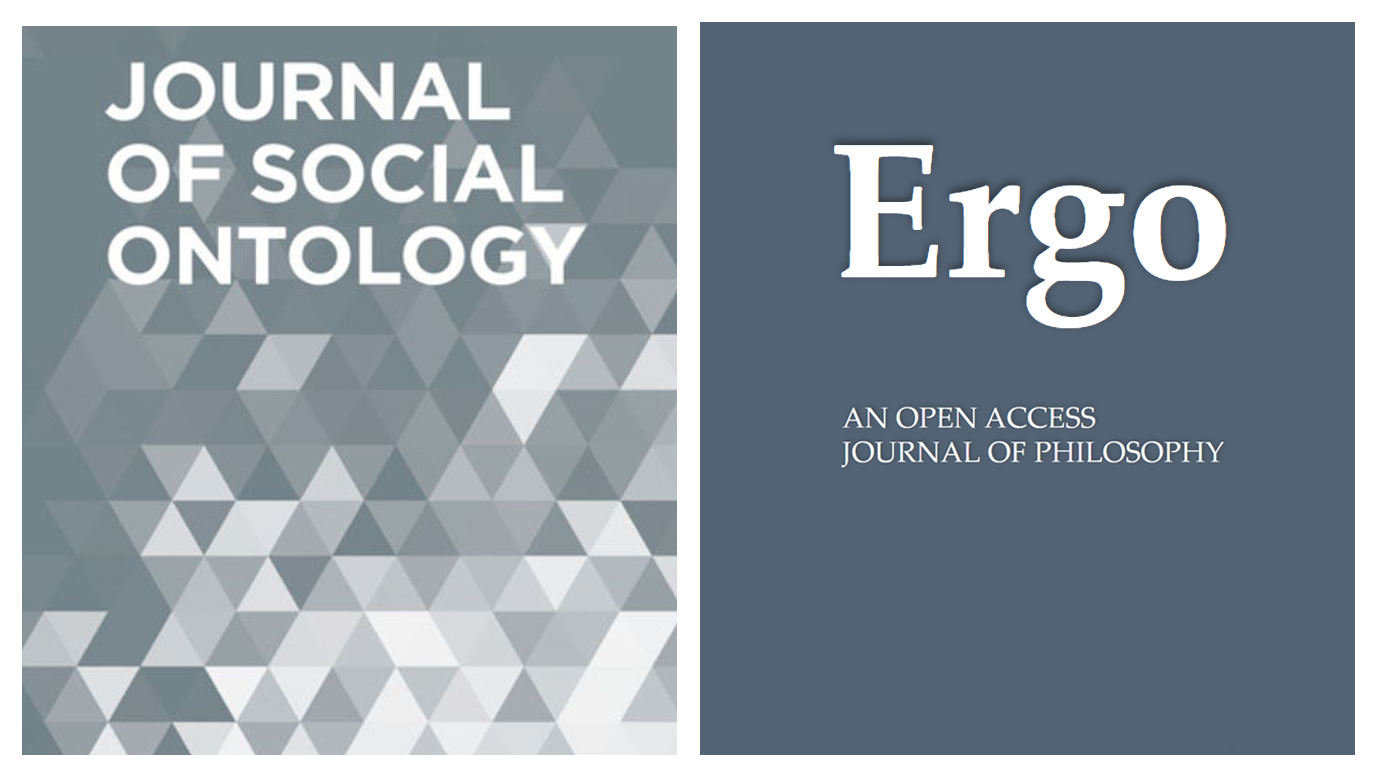News About Two Open-Access Philosophy Journals
One philosophy journal has shed its corporate publisher to protect its current open-access status, while another has initiated a funding plan that offers departments of philosophy institutional memberships.
The Journal of Social Ontology, since its founding in 2015, was published by the German corporation De Gruyter as a fully open access journal. That has just changed, says its editorial board, who announced the journal’s new independence in an email:
We are very pleased to announce that, as of 2022, Journal of Social Ontology will be a fully Open Access journal that is entirely self-published. Journal of Social Ontology continues to be funded by International Social Ontology Society (ISOS), and will receive additional funding from the University of Vienna to support this move. This step will serve to safeguard the future of Journal of Social Ontology as a fully Open Access venue which makes papers freely available to all readers without any cost to authors, their institutions, or those who submit papers – something to which ISOS and the Editorial Board are deeply committed.
Further information about this change and other details about the journal, as well as an announcement of an essay competition, can be found on the journal’s new website. (via Niels de Haan)

Meanwhile, Ergo, an open-access philosophy journal launched in 2014 and published by Michigan Publishing Services, initiated a manuscript submission fee in 2020 to help it defray costs. Now it is offering “institutional memberships” as part of a new plan to provide stable and ongoing funding for the journal.
Universities (likely through their departments of philosophy, but possibly through libraries or other campus units) may become “members” of Ergo by making an annual donation. The suggested donation is $200 per year for PhD-granting institutions and $100 per year for all others. The manuscript submission fee donation request* of $20 is waived for individuals at member institutions.
So far, the journal lists the following institutions as members: Murdoch University, Princeton University, Syracuse University, Umeå University, York University, University of Birmingham, University of Edinburgh, University of Leeds, University of Notre Dame, University of Toronto, University of Vermont, and University of Western Australia.
Those interested in learning how their institution can make a donation and become a member should see this page at Ergo’s site.
*See the comment from Ben Bradley, below.



Thanks for this announcement, Justin. I just need to clarify that it’s not a manuscript submission fee, it’s a donation request. (I botched the wording in the initial announcement way back, but it is legally important given the kind of fund we have set up.)
Several departments have joined as co-sponsors in the last two days. But we need a bunch more! If we get enough departments to co-sponsor, we will stop requesting individual donations. We’re about 1/4 of the way to our goal right now.
I’ll also mention that university libraries are also sometimes keen to co-sponsor these kinds of things, as this effort could one day lower their journal subscription costs a lot if it catches on. Some sponsoring departments have already shifted responsibility to their libraries. So those who want to help are encouraged to send a note to their librarians- or even just put me in touch with them, and I can send them a pitch.
Good occasion to remind folks of a longer version of this compelling case made at Imprint. Our possible better future involves more and more people following the successful model Imprint and Ergo have successfully established: https://www.philosophersimprint.org/about.html#mission
One would hope that Phil Imprint looks to Ergo’s model for inspiration. Allowing institutions to pay a subscription for all submissions is a much better and simpler model for solving the publication cost problem than having each author pay, imho.
Ergo and JSO are also remarkably well-run.
Want to mention that Ergo is extremely well run: the manuscript status is clear (you get to see when referees are invited, whether they’ve accepted the task, and when they’ve completed the review); the desk rejections are super quick; the editor won’t reject papers because of grammatical mistakes (very good for non-native speakers) but will help to point them out upon acceptance.